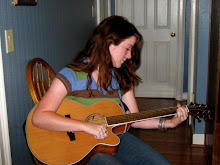I believe that to gain a better understanding of the literature, one should begin reading the introduction biography about the author. In many cases, themes and ideas can be traced if one knows the author's background. My basic assessment of Coleridge from his biography is that he was constantly trying to find his happiness in some new means. In the beginning, he married based upon societal expectation and was quickly discontent. He had an affair with Sara Hutchinson and for a time, seemed happy for a time. But around this same time, he became addicted to an opium. Because of the side effects of the drugs, Coleridge plunged into depression and worthlessness for a time. One would wish that his failed marriage and affair were part of his dejection, but he seemed to see no particular issue with the affair. In The Eolian Harp, he seems to attempt to justify his unfaithfulness: "I praise him, and with faith that inly feels; Who with his saving mercies healed me, a sinful and most miserable man, wildered and dark, and gave me to possess peace, and this cot, and thee, heart-honoured Maid!" (326) He is referring to Sara in this passage. Coleridge seems to think that Sara is a blessing from God that he is justified to possess. The Bible is very clear on adultery and Coleridge was well-versed enough to know this. This seems a prime example of human nature. We pick and choose "right" and "wrong" based upon personal benefit, instead of morality.
The Rime of the Ancient Mariner is perhaps Coleridge's most prominent of writings. The introduction's theme is basically the limitations of human knowledge, understanding, and experience. As the story continues, the relevance of this opening becomes more apparent. The ancient Mariner is recounting his tale at a wedding, which seemed like an odd setting to me. Usually, wedding conversation is limited to small talk, not epic tales, but that aside, the elaborate story is told. The crew of the Mariner's ship is visited by a special friend, an albatross. At first, the crew takes care of the bird with the utmost charity, but then one day for no obvious reason, the Mariner kills him. All of the crew worried that this murder would place a bad omen upon the ship. The misfortunes came, but in an unexpected way. The Mariner stood upon the deck with the dead bird hanging about his neck, waiting for judgment in a sense. Warning, Rabbit trail ahead: Why did they save the dead bird? Instead of death, the Mariner is given life-in-death, which in my opinion appears much worse. In a lot of cases, death can be viewed as a means of escape or a painless ending. Because of his cruelty, death was too kind of a treatment for him. His entire crew keeled over and he was left floating adrift alone. Despair flooded over him and he wished he was dead. As time continued, he finally started praising the beauty of God's creation and at that moment, the albatross fell into the sea. It was the metaphorical lifting of his burden. The punishment is still fulfilled later as everything is ripped from him. He is left with no crew or ship. His physical life was still spared, but he was dead in spirit. Coleridge uses this story as a moral lesson. The Ancient Mariner tells the wedding guest this story to save the man from ever discrediting God's creation. Love and care of all God's creations is the moral of the story. The power of this story comes from evoked emotions. At one moment, the reader may love the Mariner, and the next, despise him for his senseless act.
As a whole, I am not a Coleridge fan, but I am an animal lover and thus, anyone that is in opposition to animal cruelty wins some of my respect and affection.
Subscribe to:
Post Comments (Atom)

2 comments:
Meredith,
Very good responses to the two poems by Coleridge you discuss here. I think it is a valid approach to bring to an interpretation knowledge of the events in a poet's life. You need to be careful with dates and assumptions, though. Coleridge's "The Eolian Harp" was written prior to his ever meeting Sara Hutchinson, and I am not aware of proof he ever actually had an affair with her, even though he was clearly infatuated with her.
Good improvement over your last few posts, especially as regards your use of textual evidence in your discussion. Keep up the improvement.
To be honest, I am not much of Coleridge fan either! I agree that reading "Ancient Mariner" can seem very exhausting...I'm still grappling with the poem and this class is almost over!
I noticed that your final post (which I read earlier) focused in on Woolf. Woolf actually agrees with some of Coleridge's perspectives on writing (particularly, the instance of the author writing in an "androgynous" manner). I wonder how difficult it is to decipher a poetic voice that leans toward neither sex? That made Coleridge a little more exciting for me, maybe it will do the same for you! :-)
Post a Comment